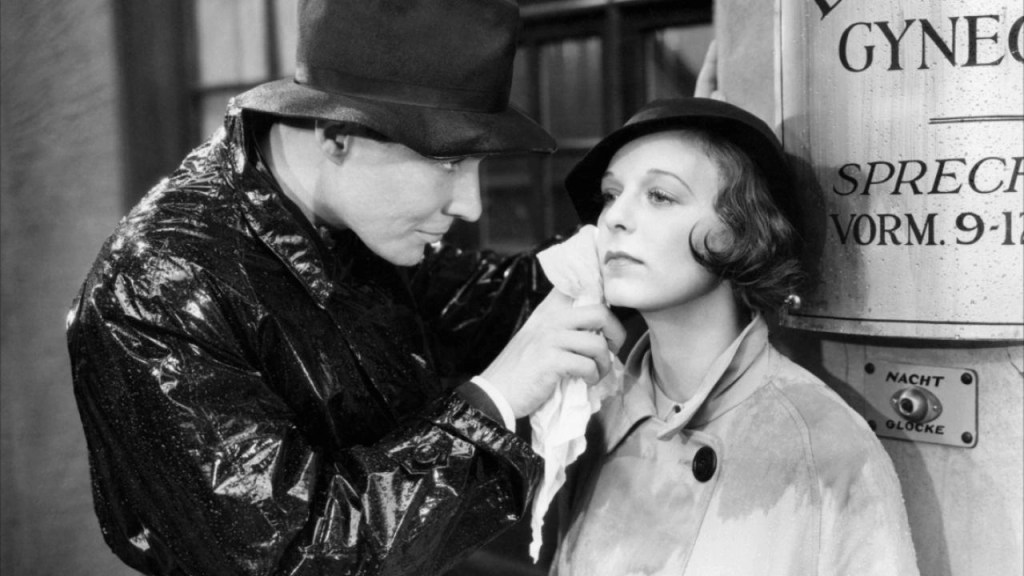Frank Borzage, an American director and actor, is acclaimed for his romantic and deeply emotive storytelling that left a lasting impression in Hollywood’s silent and early sound era. His films, including 7th Heaven and A Farewell to Arms, are emblematic of his distinctive narrative style, with a keen focus on the themes of love, spirituality, and the human capacity to endure hardship.
Initially an actor, Borzage transitioned into directing in the 1910s, making him a significant figure in the early days of Hollywood. His experience in front of the camera deeply informed his directorial approach, with a noticeable emphasis on the nuances of performance and an empathy towards his characters that resonated with audiences. This is particularly evident in films like Street Angel, where he navigates the complexity of human relationships and emotion with deftness.
Borzage’s films recurrently revolve around the transformative power of love, often set against adversity. His characters, however stereotypically distressed or humble, find redemption and hope through their relationships. A case in point is 7th Heaven, where love becomes a spiritual sanctuary for the destitute leads, emphasising Borzage’s belief in love as an elevating, salvational force.
Luscious Influence
Borzage’s visual style is characterised by atmospheric lighting and expressive cinematography, with a penchant for symbolic imagery. His films have a certain luminosity that mirrors his narratives’ spiritual and emotional undertones. In Lucky Star, his use of light and shadow alongside poignant close-ups of the characters’ faces enhances the story’s emotional resonance and spiritual symbolism.
In terms of influence, Borzage has been an inspiration for filmmakers who value emotional and romantic narratives, including directors like Douglas Sirk and Pedro Almodóvar. His romanticised, optimistic vision offered a unique counterpoint to the cynical trends of the era, which continues to inspire filmmakers who seek to explore the more uplifting aspects of the human experience. Even though he may not have achieved the enduring fame of some of his contemporaries, Borzage’s contribution to the film language of romance and his exploration of love as a transcendent force has firmly established his place in film history.

Frank Borzage (1894 – 1962)
Calculated Films:
- Seventh Heaven (1927)
- Lucky Star (1929)
- History Is Made at Night (1937)
- Three Comrades (1938)
- The Mortal Storm (1940)
- Till We Meet Again (1944)
- I’ve Always Loved You (1946)
- Moonrise (1948)
Similar Filmmakers



Frank Borzage’s Top 10 Films Ranked
1. Lucky Star (1929)
Genre: Romance, Melodrama

2. 7th Heaven (1927)
Genre: Romance, Melodrama

3. The Mortal Storm (1940)
Genre: Drama

4. The River (1928)
Genre: Romance, Melodrama

5. History Is Made At Night (1937)
Genre: Romance, Drama

6. Three Comrades (1938)
Genre: Romance, Drama, Melodrama

7. Street Angel (1928)
Genre: Melodrama, Romance

8. Moonrise (1948)
Genre: Film Noir, Drama

9. Man’s Castle (1933)
Genre: Romance, Drama

10. Little Man, What Now? (1934)
Genre: Drama, Romance

Frank Borzage: Themes and Style
Themes:
- Romantic Idealism: Borzage’s films often centre around love as a transformative, transcendent force. His characters frequently find redemption or salvation through romantic relationships.
- Suffering and Redemption: Many of his stories involve characters undergoing intense emotional or physical trials, only to find redemption by the end.
- Socioeconomic Struggles: Borzage often depicted the challenges of the working class, drawing attention to societal inequities and the power of the human spirit to endure.
- Faith and Spirituality: Religion and spiritual beliefs appear as central themes, illustrating the resilience and hope of his characters in the face of despair.
Styles:
- Expressionistic Techniques: Borzage was known for employing soft-focus cinematography and dramatic lighting. This gave his films an ethereal, dreamlike quality that heightened their emotional impact.
- Melodramatic Narratives: He wasn’t shy about leaning into melodrama, utilising it to amplify emotional stakes and enhance the viewer’s emotional connection to the story.
- Close-ups: Borzage often used close-ups to capture the nuanced emotions of his characters, particularly in romantic scenes, thus emphasising the intimacy and intensity of their experiences.
- Symbolic Imagery: His films contain rich symbolic imagery, whether it’s objects, settings, or gestures that convey deeper thematic meaning.
Directorial Signature:
- Emotional Resonance: Regardless of the plot, Borzage’s films are known for their deep emotional resonance. They prioritise the internal emotional journeys of the characters, often giving them more weight than external events.
- Optimism Amidst Adversity: Even in the bleakest scenarios, Borzage’s characters usually maintain a sense of hope or find moments of joy, reflecting his belief in the enduring human spirit.
- Intimate Portrayals of Love: Borzage had a gift for portraying love as a profound, all-consuming force. His romantic scenes are notable for their authenticity and depth, making them stand out even by today’s standards.
- Layered Characters: Rather than one-dimensional archetypes, Borzage’s characters are complex, multi-faceted beings. They’re often flawed, yet they also possess an innate goodness that shines through by the film’s end.
Frank Borzage: The 170th Greatest Director




